US Voices Concern Over Expanding Russia-Iran Military Cooperation
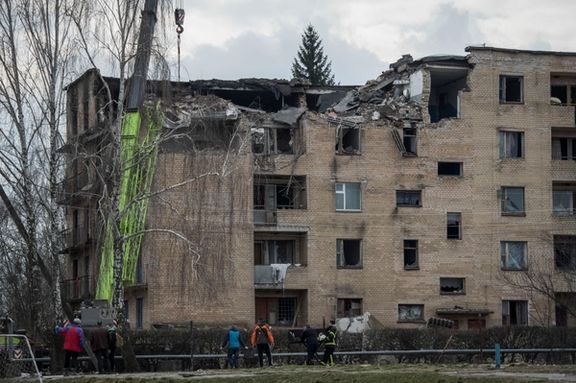
The United States believes Russia and Iran are expanding an unprecedented defense partnership that will help Moscow prolong its war in Ukraine, the White House said Monday.

The United States believes Russia and Iran are expanding an unprecedented defense partnership that will help Moscow prolong its war in Ukraine, the White House said Monday.
As part of the cooperation, Iran is providing Russia with one-way attack drones, including more than 400 since August, national security adviser John Kirby said at a news briefing.
"This is about a burgeoning defense relationship" that allows Russia to kill more people in Ukraine and also enables Iran to stock up on its military hardware and pose a greater threat to its neighbors, Kirby told reporters.
The US and its European allies have already imposed sanctions on individuals and entities for their role in Tehran’s drone program and their delivery to Russia. Washington has also listed Tehran’s military cooperation with Moscow as one of the impediments to resuming talks aimed at limiting Iran’s nuclear program and lifting crippling economic sanctions.
Drones are the primary military help Iran is providing to Russia, which is seeking to acquire advanced level types, he said.
Russia uses Iranian Shahed drones mainly to target civilian infrastructure and also swarm Ukrainian air defenses during large-scale missile strikes. The tactic was repeatedly used last year when Moscow tried to cripple Ukraine’s energy sector.
The Unites States will be announcing additional designations targeting increased military cooperation between Russia and Iran, Kirby added.
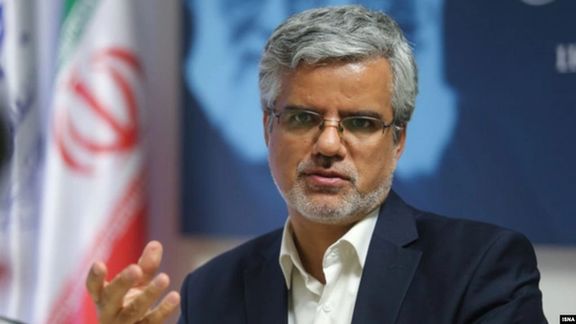
Former Iranian Member of Parliament Mahmoud Sadeghi has been summoned to the security prosecutor's office after recent criticisms of the regime on social media.
Publishing the picture of his summons on Twitter, this former representative wrote that he should go to the seventh branch of the Security Prosecutor's Office located in Evin prison in Tehran on May 23.
There is no accusation mentioned in the notice, but it is stated that the former reformist MP will be arrested if he does not show up.
Sadeghi is an Iranian lawyer, jurist, and academic who was a member of the parliament representing Tehran from May 2016 to May 2020.
Sadeghi is an associate professor at the Tarbiat Modares University and his field of expertise is Private law.
In 2016, he appeared before the special court for culture and media in Tehran to answer questions about his comments on possible corruption among senior officials. He was released after posting a bond, but later he was sentenced to 21 months of discretionary custodial imprisonment.
Sadeghi has been summoned several times since 2016, but refused to appear before the court, citing his legislative immunity. Judicial authorities attempted to arrest Sadeghi at his home in Tehran at the time with an arrest warrant based on a plaintiffs’ case against him.
He was heading a new faction in parliament which was charged with helping ensure “transparency and purification of the economy.”
His remarks on the personal bank accounts of the judiciary chief put him in trouble. Sadeghi asked the justice minister to explain the reason behind the alleged transfer of public funds to the personal accounts of the then Judiciary Chief Sadegh Larijani.
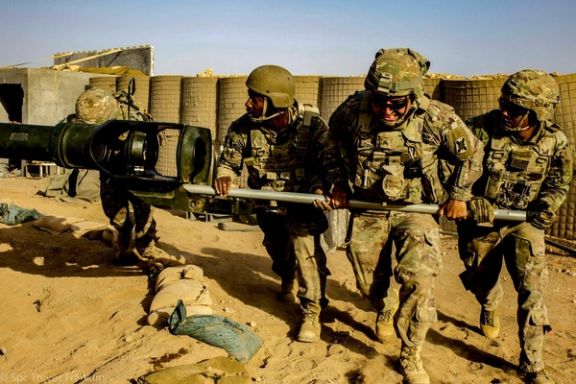
A US official says several American civilians and military personnel were wounded and a contractor was killed by a drone attack from an Iranian-backed militia in northern Iraq on March 23.
The origin of that attack had never been reported, but a senior US military official acknowledged it to The Wall Street Journal on Saturday.
As a result of the attack on a maintenance hangar near Hasakah, Syria, the US contractor was killed, making it the first American fatality since Biden took office. Injuries also affected 24 US service members, many of whom suffered traumatic brain injuries.
“When that attack happened, we did not know the launch point. We were able to exploit the engine of the drone, which had a serial number, which clearly tied it back to Iran,” the senior US official said.
“We’re not looking to get into tit for tat skirmishes with these groups, which some of the groups want us to do,” said the senior US official. “Our policy is to hold Iran accountable for all these attacks.”
It is clear from the strikes that the Biden administration faces difficulties in the Middle East as it shifts its military focus to deterring China and Russia.
Additionally, it highlights the challenges the United States faces in coming up with a policy to deal with Iraq 20 years after Saddam Hussein's regime fell.
Several former officials and experts have criticized the administration's approach for downplaying problems in Iraq, such as those caused by militias supported by Tehran.
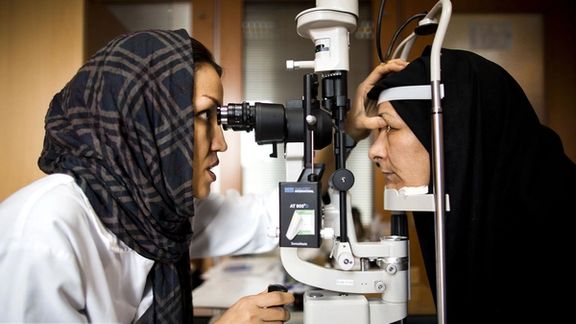
Iran’s Medical Council says no doctor has the right to refuse to accept and examine a patient over hijab issues.
However, the head of Medical Council, Mohammad Rais-Zadeh, said Sunday that no hijab-related case has been sent to the council so far.
The ruling follows reports of a doctor refusing to accept a veiled patient in the northeastern city of Mashhad.
In February, a medical office in the northeastern Iranian city of Kashmar was shut when a doctor there objected to a woman harassing a patient over her “improper clothing”.
Earlier in February, Iran’s Health Minister Bahram Einollahi said violation of hijab regulations is considered a crime at hospitals and if they do not abide by hijab regulations, they will not receive approval to operate. He added that public hospitals have been required to comply with the hijab law and provide services to women by female staff.
“Women's ultrasound should be performed by women, and in some cases that we do not have enough radiologists, we ask female general practitioners and gynecologists to be given short-term training,” underlined the minister.
The clerical regime continues to strictly enforce the "mandatory hijab", despite the mass protests that followed the death in custody last September of 22-year-old Mahsa Amini, who had been arrested by the morality police for defying modesty rules.
About a month before the death of Mahsa Amini, the so-called morality police had started patrolling medical and academic centers in Iran’s northeastern city of Mashhad to enforce compliance with the Islamic dress code. Social media users earlier reported the presence of teams from what the Islamic Republic calls the ‘Enjoining right and forbidding vice headquarters’ in various wards of hospitals and medical centers in other cities, with some reports of pressures on hospitals to separate male and female patients admitted to the ICU.
The uprising has made it increasingly difficult for the clerical regime to enforce the mandatory Islamic dress code. Appearing in public without a full veil has become a common sight even in small and more conservative towns. Since the beginning of the ‘Women, Life, Liberty’ movement in September last year, thousands of girls and women have set fire to their headscarves in a symbolic move and voiced opposition to compulsory hijab.
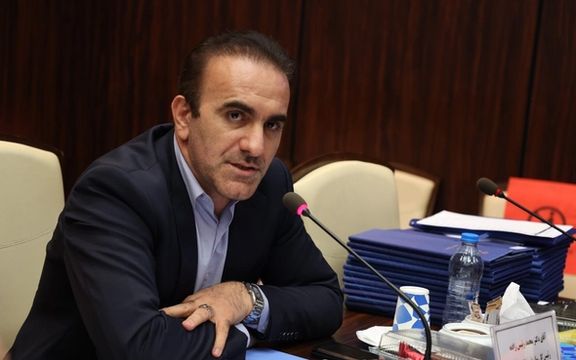
Rais-Zadeh also voiced his concern over the low income of doctors and surgeons, saying current wages mean no one would study for many years to qualify.
Iran’s medical profession is facing a crisis as more and more doctors leave the country for better wages and working conditions.
Driven by economic and professional problems, as well as lack of social and political freedoms, an increasing number of Iran's healthcare professionals emigrate.
There are no transparent data on the emigration of healthcare and other professionals, but medical officials and lawmakers often offer fragmentary information on the scope of the problem. The number of doctors emigrating has more than doubled in the past decade, according to one report.
Thousands of physicians, dentists, midwives, and nurses have either emigrated in the past few years or are planning to leave for other countries. Many in Iran, including lawmakers, have repeatedly warned that the ever-increasing desire of healthcare professionals to leave will result in the deterioration of the country’s healthcare system.
In February, Mohammad Sharifi-Moghadam, a member of the central council of Iran's Nurses’ Organization, said between 2,500 to 3,000 nurses were emigrating from Iran each year, based on the number of requests for good standing certificates, confirming that the applicant is entitled to practice medicine in the country.
The average salary for a doctor in Iran is about $400 per month, against ten as much or more in the US and UK. Physicians and other health professionals’ maximum fees as well as private hospitals’ tariffs are set and announced by the government annually.
Mohammad-Ali Mohseni-Bandpey, a member of the parliament health committee, said last year that wrong government policies affecting doctors included ignoring their needs and demands and refusing to allow them to raise their fees despite higher costs of living and running their practices. According to Mohseni-Bandpey, despite an almost 50 percent annual inflation rate, the government is trying to prevent a similar increase in doctors’ fees, to keep healthcare costs down. He suggested that the government should allow them to increase their fees but shift the burden to insurance companies rather than patients.
Doctors in Iran must also contend with a lack of adequate medical equipment and resources.
With fewer doctors available to provide care, the quality of medical care in Iran is declining, especially in rural areas, where access is already limited.
Moreover, medical schools are struggling to attract and retain students, leaving the future of the medical profession in Iran in doubt.
A major investment in the healthcare system, as well as increased funding for medical schools and hospitals is required to salvage the situation and stop the flood of emigrating doctors. However, Iran’s dire financial plight means such investment is impossible for the foreseeable future.
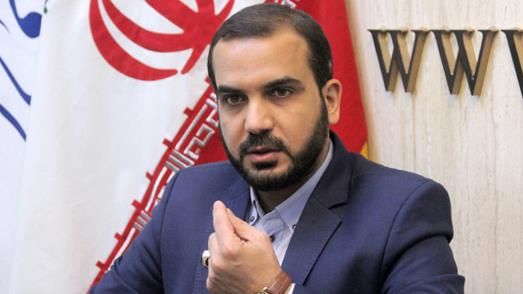
Iran has been supplanted by Turkey as the region’s transport hub despite Tehran’s ambitions, an Iranian MP has admitted.
Mojtaba Yousefi said Monday the Persian Gulf countries and also the north of the region look to Turkey as the transportation hub.
Meanwhile Iran suffers from poor infrastructure that make a mockery of its ambitions in recent years to be the leader.
Yousefi said: “Out of more than 60 airports in Iran, less than 40 airports are operational and only one is an economic airport.”
The country’s roads and railways are in need of significant upgrades, while the ports are not equipped to handle the large volumes of cargo that would be necessary for Iran to become a regional hub. Furthermore, the airports are not up to international standards, most of the airplanes suffer from technical issues, and the air traffic control system is inadequate.
Political instability and economic sanctions mean the situation is highly unlikely to improve any time soon. The financial uncertainty has made it difficult for businesses to pour in the investment into infrastructure necessary for Iran to ever become a credible international transport hub.
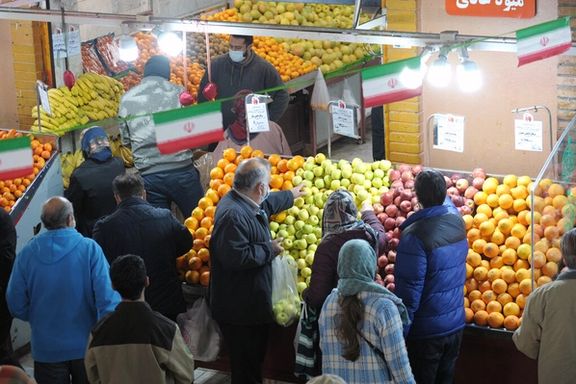
The high price of the new season’s crop of fruit is out of reach for Iranian shoppers, according to an industry leader.
The head of the fruit and vegetable sellers’ union of Iran, Esmail Moradian said on Monday that though the price of some items have fallen back, shoppers still cannot afford them.
Inflation in the fruit market is lower than some other sectors, but with consumers suffering plummeting purchasing power, many have held back from buying fresh fruits and prefer to wait for further price drops.
The price of watermelon has increased by a staggering 66.67%, and strawberries by 33.33%, Mehr news agency reports.
The cost of fruit in Iran has rapidly risen in recent years, making it increasingly unaffordable for ordinary people.
This situation has been made worse by a weak economy, sky-rocketing inflation, and a depreciating currency. The result is a nutrition and health crisis, as ordinary families miss out on fresh fruits and vegetables.
The situation is even worse for those on low incomes, who may not be able to afford fruit at all.
The Iranian economy has been deeply unstable for the past few years, with a sharp decline in the value of the rial and a general economic downturn. This has had a major impact on the price of food items, with inflation reaching a staggering 75 percent for some items.
The crisis has pushed many households below the poverty line.